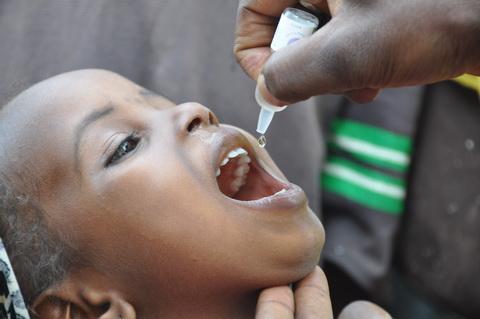‘Need to strengthen immunisation coverage’
The recently launched 2021 National Immunisation Coverage Survey (NICS) has revealed that 18 per cent of children 12-23 months old did not receive any vaccinations. While this is a relative decrease of 55 per cent from five years ago, there is need to strengthen immunisation coverage in the country, so as to protect children from […]

immunisation
The recently launched 2021 National Immunisation Coverage Survey (NICS) has revealed that 18 per cent of children 12-23 months old did not receive any vaccinations.
While this is a relative decrease of 55 per cent from five years ago, there is need to strengthen immunisation coverage in the country, so as to protect children from vaccine-preventable diseases.
- NIGERIA DAILY: The Impact Of Shekarau’s Defection From NNPP to PDP
- Nigeria’s prospects in the hydrogen economy
While some states have done well in immunisation coverage, others are yet not.
The survey showed that the smallest proportions of children who did not receive any vaccinations are found in Enugu (1 per cent) and Ebonyi (0 per cent), while the highest percentage is in Sokoto (51 per cent).
Nigeria is committed to the goals of the Global Vaccine Action Plan (GVAP). However, according to the NICS survey, immunisation coverage in Nigeria is below GVAP goals, putting a substantial number of children at risk of vaccine-preventable diseases.
It said immunisation coverage varied across Nigeria but improvements are needed in every state.
Recently, Nigeria commemorated the third anniversary of its Wild Polio Virus (WPV) free status.
While a lot of progress has been made, experts say there is need to ramp up immunisation to address the outbreak of vaccine-derived polio virus among children.
Speaking during the commemoration in Abuja, Eduardo Celades, UNICEF Chief of Health, Nigeria, said it is time for Nigeria to further strengthen immunisation.
He said while the country has reduced the number of zero-dose children, the routine immunisation rate remains low.
He said the battle against wild polio may have been won, but that the war against all types of polio is not yet over, as the circulating variant of poliovirus is still affecting too many children in Nigeria.
“But again, thanks to our joint efforts, our perseverance, and strong conviction that the world without all forms of polio is possible. We have managed to control the situation. There is still a lot of work ahead of us,” he said.
He added that with everyone’s support in vaccinating all eligible children, Nigeria can ensure that child survival improves.
“With the same dedication and energy that sustained Nigeria WPV free, we can protect our children from preventable childhood-killer diseases.
“Children need the protection provided by vaccines now, more than ever. And we have shown that together we can make it happen,” he said.
The National Primary Health Care Development Agency (NPHCDA) has integrated childhood immunisation and other primary healthcare services in the COVID-19 vaccination exercise to accelerate immunisation in the country.
Childhood vaccines protect against polio, whooping cough, measles, yellow fever, tetanus, tuberculosis, and other childhood preventable diseases.
NPHCDA also recently introduced Rotavirus vaccine into the national routine immunisation schedule.
The organisation enjoined parents and guardians to harness the opportunity to get their children vaccinated.
The WHO Nigeria Country Representative, Dr Walter Kazadi Mulombo, said immunisation remains the most cost-effective public health intervention.
He said, “Unfortunately, the benefits of immunisation are unevenly shared. The immunisation agenda 2030 and the GAVI 5.0 strategy seek to address this gap by ‘Leaving no one behind with immunisation’.
“This is also in keeping with the UN Global Strategy for Women’s, Children’s and Adolescents’ Health of ending preventable deaths and ensuring health and wellbeing.”
He said Nigeria should continue to implement these strategies to address gaps in immunisation through the life course and prevent deaths.
“If we stop vaccination, deadly diseases will return, and when people are not vaccinated, infectious diseases that have become uncommon can quickly return.
“Indeed, immunisation is the right of every Nigerian child, and the Government of Nigeria has sustained this partnership,” he said.
